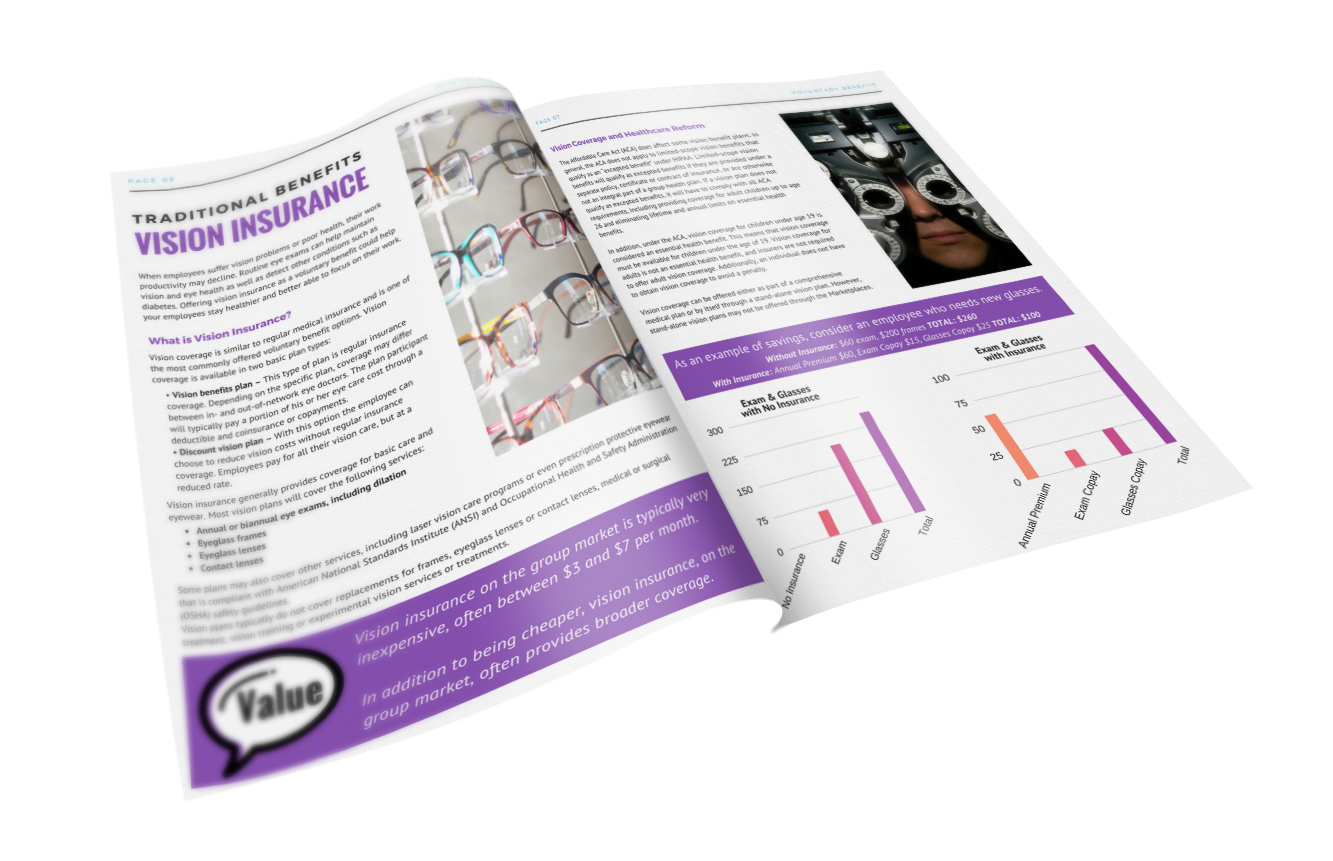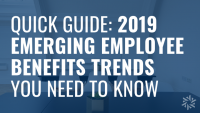Value in Variety
Voluntary benefits can be insurance or non-insurance products. For the voluntary benefits your company offers, employees can take advantage of lower group rates, the convenience of payroll deductions, and in some cases, pre-tax deductions. Non-insurance benefits may also be offered to add extra value and personalization to your total benefits package. Many of these benefits are designed to offer simplicity, convenience or money-saving options to your employees’ lives.
The ability to customize a benefits package at the employee level can help you grow loyalty and retention.
Small Changes = Big Results
Even a small increase in your benefit offerings can drastically reduce turnover. According to a MetLife Benefit Trends Survey, 53% of employees say they plan to stay at companies offering five or fewer benefits, while 66% say they plan to stay at companies offering eleven or more benefits.
Check out these top reasons why voluntary benefits are well worth the time and money spent by your business.
LOW COST
Voluntary benefits cost employers little to nothing to offer while making compensation packages more attractive to current and future employees.
OFFSET HEALTH
Many employers consider expanding their voluntary benefits to compensate for increasing health care costs which are a major factor in the recent trend toward providing a wider array of voluntary benefits.
VARIETY
Voluntary benefits can be chosen to create a completely different total rewards package for each employee (and their family). With the right buffet of options, you’ll be offering coverage that is relevant and competitive, not just standard. Working with a broker like Austin can help identify your employees’ needs and help them understand the plans’ value while taking on the burden of claims and administration for you.
RECRUIT/RETAIN
Many employees highly value certain benefits, such as dental, vision, and disability insurance making voluntary benefits offerings a great recruitment tool. Attractive benefits packages also help keep your top talent happy to avoid the high cost of turnover.
CUSTOMIZATION
A good voluntary benefits selection promotes goodwill because employees can choose options that are best for them and their families.
Traditional Benefits
Traditional voluntary benefits are insurance products you may be familiar with and most employees would at least consider purchasing them. Many can supplement a regular medical insurance plan or contribute to an employee’s financial security should they suffer a severe illness or disability. Dental and vision insurance plans are two of the most commonly offered products. More traditional voluntary benefits include:
- Dental
- Vision
- Disability
- Long-Term Care
- Life Insurance
- Critical Illness
- Accident
Non-Traditional Benefits
Non-traditional voluntary benefits include offerings that are newer benefit products or more specialized than traditional insurance products. Instead of insurance, some may offer discounts, advice, or other services that contribute to employees’ quality of life or their ability to get the most out of their budgets. Non-traditional benefits include:
- Legal Assistance Plans
- Pet Insurance
- Financial Planning Assistance
- Employee Purchase or Discount Programs
- Home & Auto Insurance
- Educational Assistance
- Identity Theft Insurance
- Adoption Assistance
Learn more about each of these benefits and more by requesting a copy of our Voluntary Benefits Guidebook below.
How to Add Benefits, Not Costs
- Understand your company demographics. Ask your employees about their needs regularly. Consider implementing surveys that include both traditional and non-traditional benefits to identify employees’ interests.
- Find a great broker who offers you tailored solutions. Look for an agency that understands your broader industry, your growth trajectory, short & long-term goals, budget and employee base.
- Offer voluntary coverage or buy-up coverage depending on your budget. Not everyone has a big budget, your employees understand. Use your company’s ability to get group rates to help employees save, or offer the ability to “buy-up” from an amount of coverage that your company does provide.
- Think outside the box. Consider work-from-home days, paid holidays, flexible schedules, pets at work, etc. All of these can complement traditional benefits and should be included in the calculation of your total rewards package. An experienced broker like Austin can help craft a custom total compensation statement to provide a visual representation for your employees.
- Communicate and engage often. Use technology to increase your reach and make the process easier for everyone.
Ready for more about voluntary benefits? Request a copy of our Voluntary Benefits Employer Guidebook by using the form below or just email us directly at marketing@austinbenefits.com!




